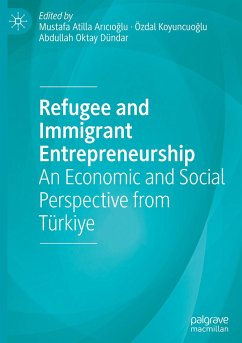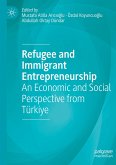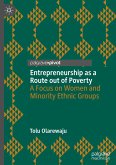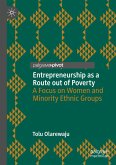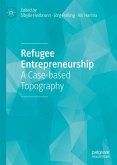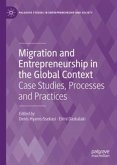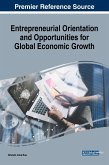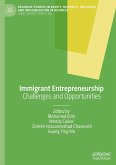Due to political and economic instability in the Middle East and North Africa (MENA) countries, an increasing number of inhabitants continue to migrate to other countries. From here, they either join employment or become refugee or immigrant entrepreneurs. Such developments carry risks such as integration problems, but there are also significant opportunities. This book takes a deep dive into those challenges and potential prospects, and places special emphasis on Türkiye, a region that is significantly impacted by migration from Syria, Afghanistan, Pakistan and other African countries.
Chapters explore the various issues around refugee and immigrant entrepreneurs within their host countries. Authors offer analysis of the difficulties experienced by such entrepreneurs in economic and socio-cultural contexts. Including various field examples using qualitative and quantitative research methods and economic implications using macro analysis, the book offers policy recommendations, examines the opportunities of refugee and immigrant entrepreneurship in Türkiye and explores the benefits to Türkiye from a holistic perspective.
Chapters explore the various issues around refugee and immigrant entrepreneurs within their host countries. Authors offer analysis of the difficulties experienced by such entrepreneurs in economic and socio-cultural contexts. Including various field examples using qualitative and quantitative research methods and economic implications using macro analysis, the book offers policy recommendations, examines the opportunities of refugee and immigrant entrepreneurship in Türkiye and explores the benefits to Türkiye from a holistic perspective.

